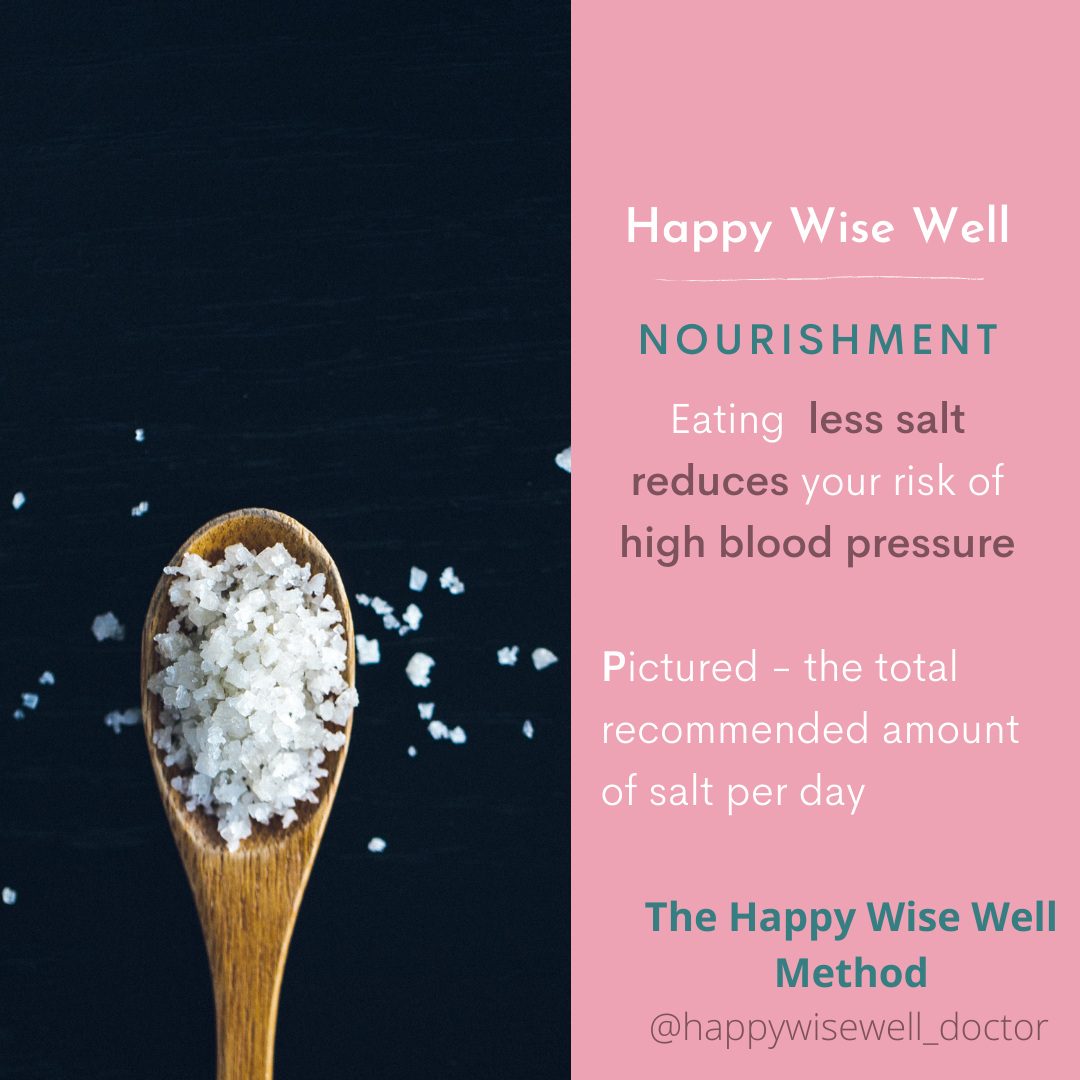Salt and Healthy Eating - Part I : Reducing Salt is a Natural Remedy to Lower High Blood Pressure
In the first part of this series, we talk about healthy eating, reducing salt and lowering high blood pressure - breaking down the evidence and explaining the science behind the guidelines.
Salt of Life
When I came across a BMJ article about salt and health, I was struck to see the word ‘controversy’ in the title. Controversy and salt?! Since when??? Surely it’s old and established news that Salt Is Bad? Was this just a clickbait-y tactic to get us to read the article, or
…IS SALT THE NEXT CHIA SEED/AVOCADO/COCONUT OIL/[INSERT FAD]?!
If the tables have now turned, and salt is the new ‘fat’, which is now Good and not Bad*, then does this mean that we can just eat to our heart’s salty, lardy delight?
Ok, I shan’t leave you in suspense any longer…
…
…
Sadly, the answer is no, but interestingly it’s not all you might think either…
*Fat is a whole other bag of confusion. The long and short of it, processed fats = bad. Naturally occurring fats in whole foods = better. Avocados4Life and all that. Although the associated carbon footprint might make you feel a little less virtuous.
Healthy salt?
- Salt is essential for life
- Small amounts exist naturally within food but most of what we consume is added during food processing or at the table
- Global average daily intake is 3660-4000mg/day
- UK guidance recommends this should be 2300-2400mg/day – that’s about a teaspoon per day.
- The American Heart Associations says an ideal level would be 1500mg /day (2/3 of a teaspoon)
Low salt - a natural treatment for high blood pressure
- Studies have shown high blood pressure with increased salt intake
- Low blood pressure was noted with lower salt diets, with the strongest effect in those with an underlying diagnosis of hypertension - a natural remedy which can help avoid pills.
- One of the best ways to treat high blood pressure is through salt restriction as it slows the progression of hypertension and reduces the risk of other blood pressure related diseases. This simple but effective home remedy is a recommended first line treatment to lower blood pressure. This should be upon the advice of a doctor who will recommend this namely if there aren’t other blood pressure related diseases or the numbers aren’t off-the-scale high.
- If you have been recommended medication to lower your blood pressure, you should definitely take this as advised since untreated hypertension is related to serious diseases and death including heart attacks and stroke. However, cutting down your salt alongside this is still worth doing - under the close supervision of your doctor, you may find your medication dosage can be reduced or maybe even stopped.
Here’s where it gets interesting:
- There is controversy as to whether low salt diets should be recommended for everyone or just those who have a diagnosis of hypertension
- Some studies have actually shown higher risk of cardiovascular disease at both the high and low ends of salt intake
Low salt - how low do you go?
- The study findings of cardiovascular disease at low levels of salt intake has led to controversy with how low to go with salt recommendations – some argue that these findings are not truly representative, and explain it away via factors like confounding and measurement error.
Low salt to lower your blood pressure
- If you have a diagnosis of hypertension, aim to keep your salt intake levels low. A teaspoon of salt is not very much, and is easy to rack up your salt intake especially if you eat out or have processed food – so home cooked, whole foods are ideal.
- If you don’t have a diagnosis of hypertension, it’s still a good idea to eat less salt; trials of outcomes in healthy individuals with normal blood pressure have not been done but even if there’s not a study to back it, it seems like a common sense idea.

